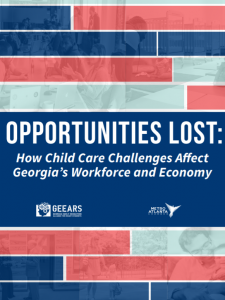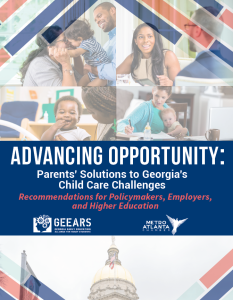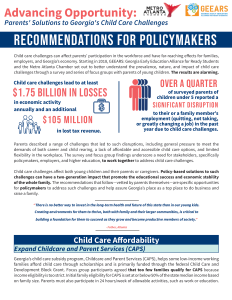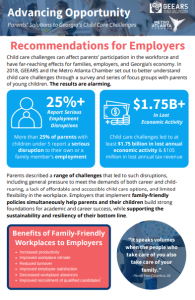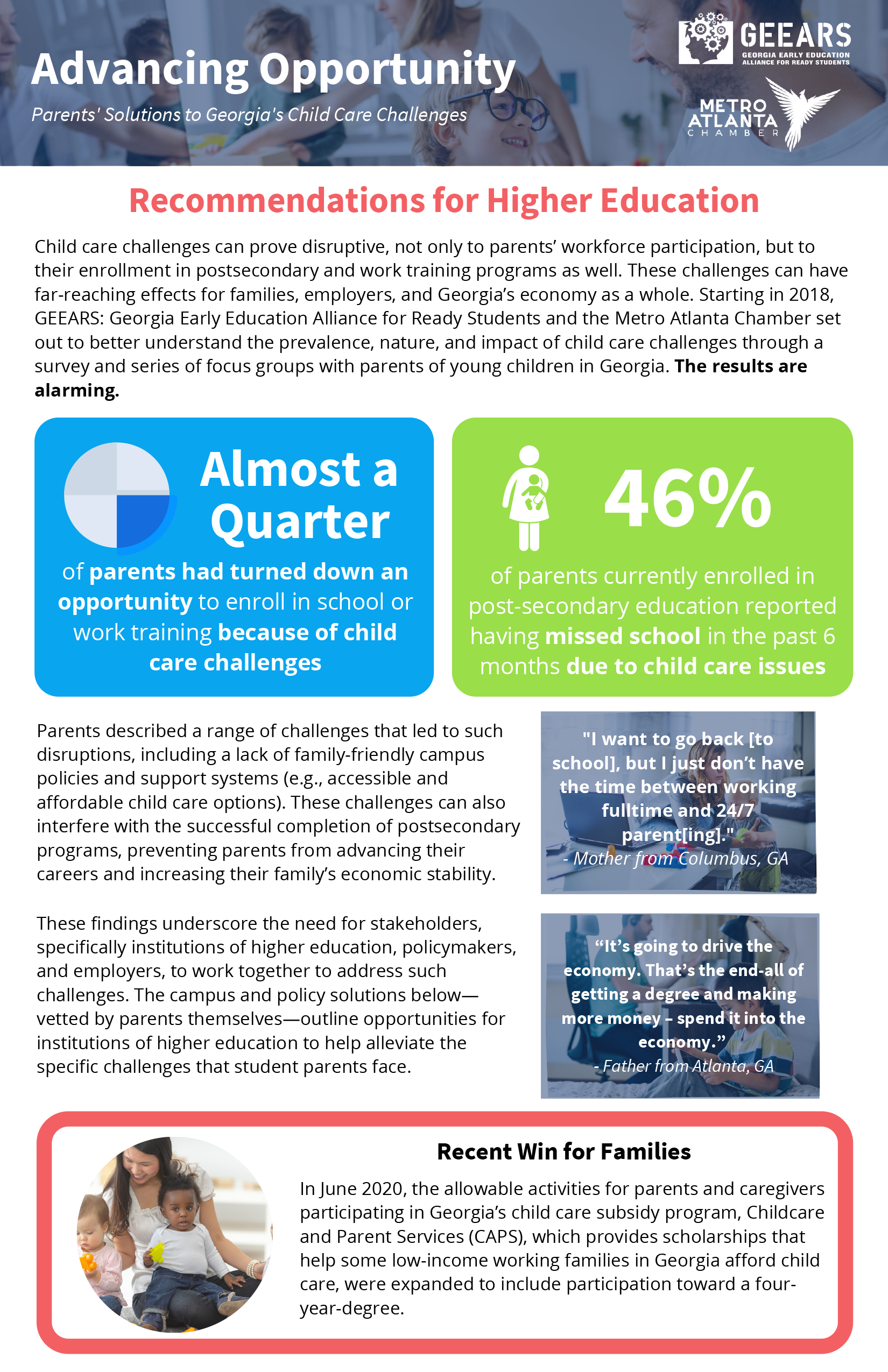Child care challenges, whether a result of systemic barriers to access or the cumulative impact of inconsistent or unreliable care, affect parents’ participation in the workforce and can have far-reaching effects for families, employers, and the state’s economy as a whole.
Starting in 2018, GEEARS: Georgia Early Education Alliance for Ready Students and the Metro Atlanta Chamber set out to better understand the prevalence, nature, and impact of child care challenges through a survey and series of focus groups with parents of young children. The results are alarming.
Opportunities Lost: How Child Care Challenges Affect Georgia’s Workforce and Economy
Building on similar work by our partners in Maryland and Louisiana, we set out to better understand the prevalence of child care challenges in Georgia through a survey of parents of young children. We found that:
- More than a quarter of Georgia parents of children under 5 reported that, in the past year, they or someone in their family experienced a significant disruption to employment—quitting, not taking, or greatly changing a job—due to challenges with child care.
- Nearly 1 in 5 reported missing more than a full week (6+ days) of work in the past 6 months.
- Child care challenges lead to at least $1.75 billion in losses in economic activity annually and an additional $105 million in lost tax revenue.
Child care challenges in Georgia are leading to significant disruptions to parental workforce participation—both in the short (e.g., missed days at work or school) and long (e.g., leaving the workforce) term—and to the state’s economy.
Advancing Opportunities: Parents’ Solutions to Georgia’s Child Care Challenges
The frequency of disruptions reported in the original survey—and the extent of their impact—were so significant that, in early 2019, we set out to better understand the nature of the challenges families reported experiencing as well as what solutions parents might propose through a series of qualitative focus groups of Georgia parents with children ages four or younger.
Advancing Opportunity: Parents’ Solutions to Georgia’s Child Care Challenges is in two parts; the first includes parents’ descriptions of the nature of the challenges they experience as working families, spanning issues related to child care itself (e.g., access and affordability) and the workplace (e.g., a lack of flexibility or family-friendly policies). The second outlines proposed solutions for policymakers, employers, and higher education to address such challenges and ensure that Georgia is a great place to raise a family and do business.
Policymakers
Child care challenges affect both young children and their parents or caregivers. Policy-based solutions to such challenges can have a two-generation impact that promote the educational success and economic stability of the whole family.
Resources for Policymakers
Employers
Employers that implement two-generation strategies—those that consider the needs of parents and their children—can help families build strong foundations for academic and career success, while also supporting the sustainability and resiliency of their bottom line. Employers should consider implementing specific family-friendly practices, such as onsite child care or flextime, as well as the championing of policies that support families and young children across Georgia—the state’s future workforce.
Resources for Employers
Higher Education
Child care challenges can prove disruptive not only to parents’ participation in the workforce but to their enrollment and participation in postsecondary and work training programs, as well. Approaches that are two-generation in nature can simultaneously address the needs of student parents, by advancing their careers, and their young children, by promoting healthy development and family stability.
